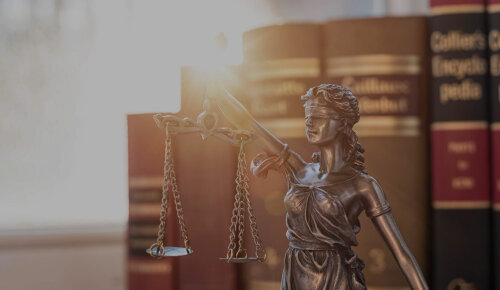Best Art & Cultural Property Law Lawyers in Chile
Share your needs with us, get contacted by law firms.
Free. Takes 2 min.
Or refine your search by selecting a city:
List of the best lawyers in Chile
About Art & Cultural Property Law in Chile
Art & Cultural Property Law in Chile is a specialized field that encompasses the regulation and protection of cultural heritage, artworks, and cultural assets within the nation. It involves a combination of national laws and international agreements that ensure the preservation and lawful management of cultural properties, with the aim of safeguarding these assets for future generations and promoting cultural identity. The legal framework addresses issues such as ownership disputes, export and import controls, restitution of cultural goods, and the prohibition of illegal trade in art and cultural artifacts.
Why You May Need a Lawyer
There are several situations where individuals or organizations might require legal assistance in the field of Art & Cultural Property Law in Chile:
- Disputes over the ownership or provenance of artworks and cultural objects.
- Dealing with issues related to the illegal import or export of cultural property.
- Negotiating agreements for the purchase, sale, or loan of art and cultural properties.
- Legal challenges related to the restitution or repatriation of cultural objects to their countries or communities of origin.
- Ensuring compliance with national and international cultural heritage laws and regulations.
- Representation in legal proceedings concerning breaches of cultural property rights.
Local Laws Overview
The Chilean legal system provides various statutes and regulations governing art and cultural property, including but not limited to:
- Law No. 17,288 on National Monuments: This law regulates archaeological sites, historical monuments, and other cultural assets deemed significant for the national heritage.
- Law No. 19,928 on Audiovisual and Arts Promotion: Aims to encourage and protect artistic creation and the dissemination of national cultural products.
- International Agreements: Chile is a signatory to key international conventions, such as UNESCO's 1970 Convention on the Means of Prohibiting and Preventing the Illicit Import, Export and Transfer of Ownership of Cultural Property.
Frequently Asked Questions
What is considered cultural property under Chilean law?
Cultural property in Chile can include items of historical, archaeological, or artistic significance, such as monuments, buildings, artworks, manuscripts, and rare collections.
Can I export artworks from Chile?
Exporting artworks may require authorization if the pieces are considered part of the national heritage. It is essential to consult with the relevant authorities and ensure compliance with local regulations.
How can I prove the provenance of an artwork?
Provenance can be demonstrated through documentation such as purchase receipts, certificates of authenticity, auction records, and historical ownership records.
What should I do if I suspect an artwork is stolen or illegally exported?
Report your suspicions to the appropriate authorities, such as the Chilean Carabineros or the National Heritage Council, and consult with a legal professional in Art & Cultural Property Law.
Are there legal requirements for selling cultural property in Chile?
Yes, transactions involving cultural property must comply with specific regulations to ensure the legality and ethical management of cultural assets.
What international laws affect cultural property in Chile?
Chile is a party to several international agreements, including the UNESCO Conventions on the protection and illicit trade of cultural property, which set guidelines for the preservation and lawful handling of cultural assets.
How is the restitution of art handled in Chile?
Restitution cases are handled on a case-by-case basis, involving negotiations and legal proceedings. Engaging a lawyer with experience in cultural restitution is advisable.
What are the penalties for illicit trade in cultural property?
Penalties may include fines, restitution orders, and imprisonment, depending on the severity of the offense and applicable laws.
What rights do artists have over their works?
Artists retain specific rights over their creations, including moral rights and economic rights, which pertain to how their works are used and disseminated.
How can I safeguard my cultural heritage property?
To safeguard cultural property, it's crucial to document ownership, ensure proper insurance coverage, and comply with national and international legal frameworks.
Additional Resources
Several resources and organizations can be helpful for those seeking advice in Art & Cultural Property Law in Chile:
- Consejo de Monumentos Nacionales (National Monuments Council): Responsible for the protection and management of national monuments and archaeological sites.
- Ministerio de las Culturas, las Artes y el Patrimonio (Ministry of Cultures, Arts, and Heritage): Oversees cultural policy and heritage management in Chile.
- ICOM Chile (International Council of Museums): Provides support and guidelines related to museum practices and cultural heritage preservation.
- UNESCO Office in Chile: Engages in multiple initiatives to safeguard and promote cultural heritage.
Next Steps
If you require legal assistance in Art & Cultural Property Law, consider the following steps:
- Consult with a specialized lawyer who has expertise in Art & Cultural Property Law in Chile.
- Gather all relevant documentation and information regarding your case or issue.
- Engage with local or international organizations that specialize in cultural heritage if necessary.
- Stay informed about changes in legislation and ongoing initiatives by participating in related forums and seeking updates from government sources.
Lawzana helps you find the best lawyers and law firms in Chile through a curated and pre-screened list of qualified legal professionals. Our platform offers rankings and detailed profiles of attorneys and law firms, allowing you to compare based on practice areas, including Art & Cultural Property Law, experience, and client feedback.
Each profile includes a description of the firm's areas of practice, client reviews, team members and partners, year of establishment, spoken languages, office locations, contact information, social media presence, and any published articles or resources. Most firms on our platform speak English and are experienced in both local and international legal matters.
Get a quote from top-rated law firms in Chile — quickly, securely, and without unnecessary hassle.
Disclaimer:
The information provided on this page is for general informational purposes only and does not constitute legal advice. While we strive to ensure the accuracy and relevance of the content, legal information may change over time, and interpretations of the law can vary. You should always consult with a qualified legal professional for advice specific to your situation.
We disclaim all liability for actions taken or not taken based on the content of this page. If you believe any information is incorrect or outdated, please contact us, and we will review and update it where appropriate.
Browse art & cultural property law law firms by city in Chile
Refine your search by selecting a city.














